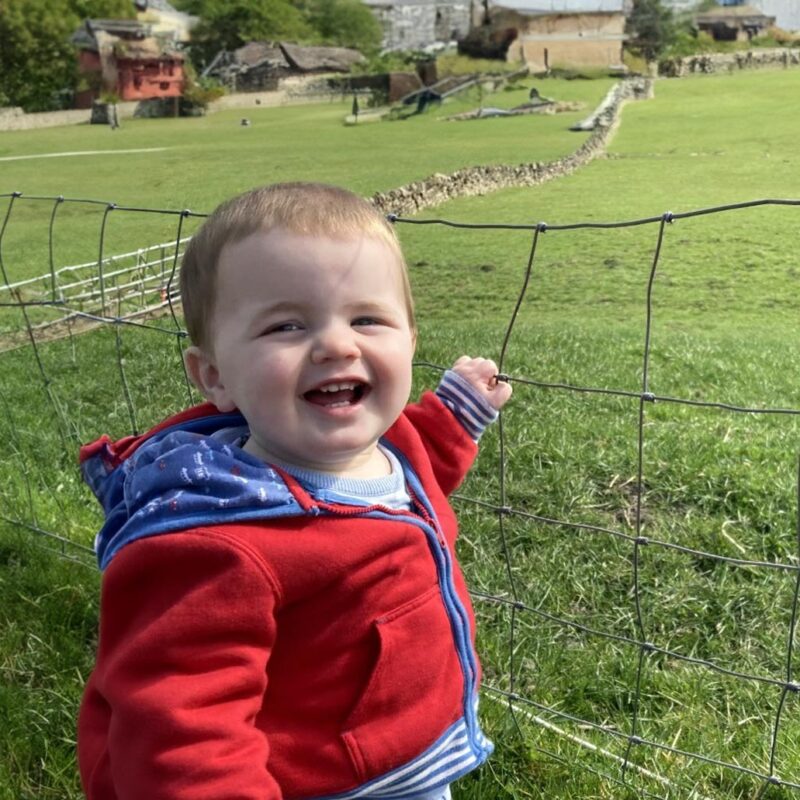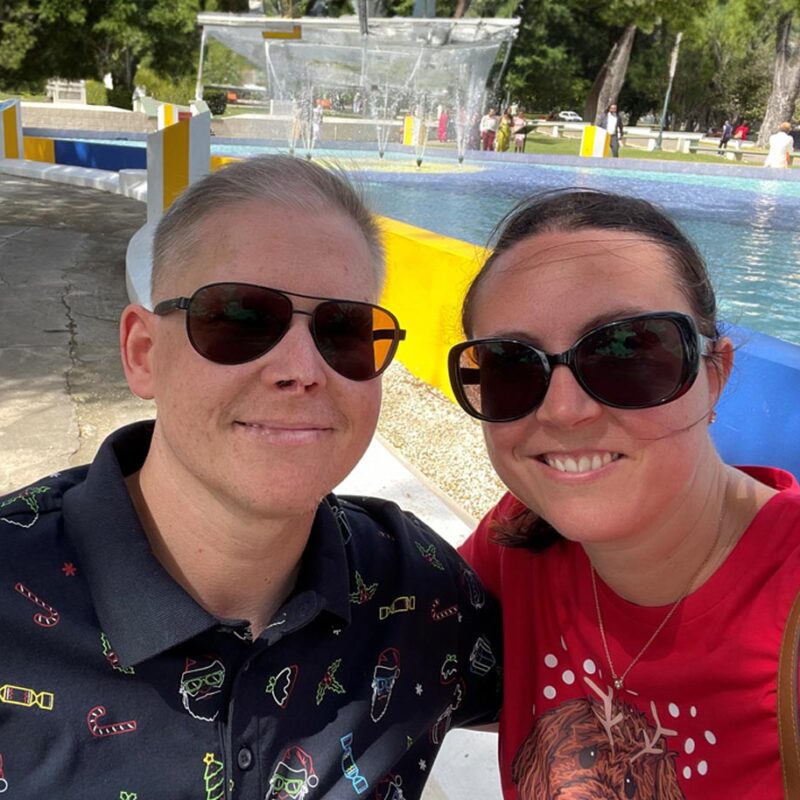Janet Hancock was rushed into hospital with severe abdominal pain in April 2024. Within hours, she was in septic shock and fighting for her life.
A former nurse, Janet had heard of septicaemia, but she never imagined she would develop sepsis herself. Her experience left her with PTSD, fatigue and brain fog, but she is gradually getting her life back on track.
Janet Hancock, 59, from Newbury, Berkshire, was taken to hospital by ambulance on 17 April 2024 after sudden, extreme pain in her lower abdomen and back.
“My 23-year-old son, who is autistic, called the ambulance and came with me to A&E,” Janet said. “I felt anxious on arrival, but the staff were lovely and I had total trust in them.”
Doctors initially diagnosed a kidney stone lodged in the tube to her bladder and planned to fit a temporary stent, expecting she would stay overnight. But after three hours her condition deteriorated rapidly. She was moved to resus as her heart and oxygen levels became a cause for concern and her skin became mottled – a key sign of sepsis.
“My breathing slowed down and became shallow but I also felt extremely calm and serene,” Janet said. “I wasn’t told it was sepsis at the time. They said after the stent I would be going to ICU. I didn’t even worry, I just thought it was still about the kidney stone.”
Janet was placed on a ventilator and spent two days unconscious in intensive care.
“When I came round on ICU I felt very safe and well cared for, and the whole experience of how close I’d come to dying didn’t really seem real,” she said.
Her children were at the forefront of her mind: “They had been informed while I was unconscious. My daughter, 28, was given compassionate leave to come home and look after her brother. My partner lives 90 miles away but came down to care for me once I was discharged.”
Janet moved to the urology ward on 20 April, where the experience was very different.
“The nurses had no understanding of how I felt physically or mentally and made me feel bad for being so tired and needing help to do simple things like using the toilet,” she said.
She stayed in hospital until 25 April, although she was later told she could have been discharged earlier.
“Unfortunately, due to a doctor forgetting to order blood tests and then going on a training day, I took up a bed unnecessarily for two days,” Janet said.
Once home, Janet faced a difficult recovery. She struggled with poor memory, brain fog and severe fatigue. Months later she developed flashbacks and nightmares – common effects of Post Sepsis Syndrome.

A former nurse, Janet had heard of septicaemia, but she never imagined she would develop sepsis herself.
“I wasn’t offered any information on sepsis or how to look after my kidneys or temporary stent when I was discharged,” she said. “Luckily I’m curious, so I started researching sepsis and found the UK Sepsis Trust.”
Through UKST, she spoke with a Support Nurse, who told her about an ICU follow-up clinic at her hospital.
“Somehow I had slipped through the net. At the appointment they answered questions and explained more about what had happened. I was offered a tour of ICU and the chance to go through my notes with a nurse. It was immensely helpful as I only had snippets of memory of my stay,” Janet said.
Janet was referred to a trauma psychologist and diagnosed with PTSD.
“I’m still seeing her now, but the flashbacks and nightmares have stopped,” she said. “My fatigue is still something I struggle with, along with brain fog and reduced mobility.”
Sepsis also affected her livelihood: “My school was going through a redundancy process while I was in hospital. My head teacher had no understanding of how ill I’d been and contacted me the day I was discharged to ask when I was coming back. My GP signed me off work for four months, but I was eventually made redundant anyway.”
With savings just over the benefits threshold, Janet had to rely on them to get by. After six months she applied for PIP due to painful knees, feet and ongoing fatigue, but was only awarded a low rate.
“I felt like I’d aged ten years,” she said. “Friends encouraged me to go on short walks, but I struggled to leave the safety of my house.”
Determined to regain financial independence, Janet completed an online course in elderly care and now works part-time as a community carer.
“I’m gradually getting my life back on track,” she said.
Reflecting on her experience, Janet is grateful to the doctors who recognised sepsis quickly and saved her life, but she wants more awareness of both the acute illness and its long-term effects.
“Sepsis can be as fatal as a heart attack or stroke and come on just as suddenly,” she said. “Yet generally people know very little about it.”
Her advice to others is clear: “Don’t think it can’t happen to you. It can happen anytime to anyone, anywhere.”





